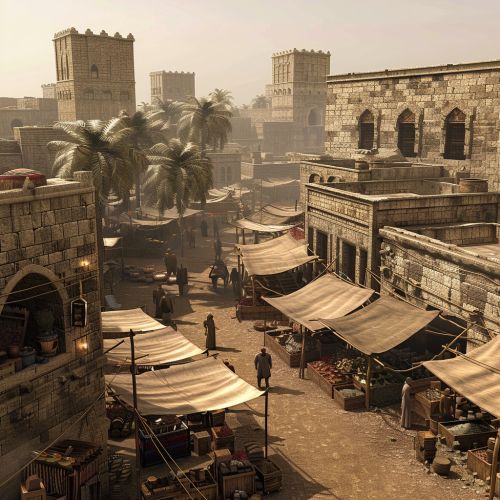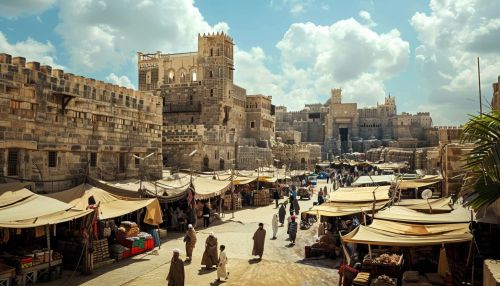History of the Middle East
Ancient History
The Middle East, often referred to as the cradle of civilization, has a rich and complex history that dates back to the dawn of mankind. The region's ancient history is marked by the rise and fall of many great empires and civilizations, including the Sumerian, Akkadian, Babylonian, Assyrian, Persian, and Ottoman empires.


The first known civilization in the Middle East was the Sumerian civilization, which arose in the fertile plains of Mesopotamia (modern-day Iraq) around 4500 BCE. The Sumerians are credited with many inventions that are still in use today, including the wheel, the plow, and the cuneiform writing system.
Following the Sumerians, the Akkadian Empire rose to power under the leadership of Sargon of Akkad. The Akkadians are known for their military prowess and for establishing one of the world's first empires.
The Babylonian and Assyrian empires followed, each leaving their mark on the region's history and culture. The Babylonians are perhaps best known for the construction of the Hanging Gardens of Babylon, one of the Seven Wonders of the Ancient World, while the Assyrians are remembered for their military campaigns and their use of iron weapons.
The Persian Empire, which emerged in the 6th century BCE, was one of the largest empires in history, stretching from Egypt to India. The Persians are known for their tolerance of other cultures and religions, their advanced system of roads and postal service, and their grand architecture.
The Ottoman Empire, which lasted from the 14th to the early 20th century, was the last of the great Middle Eastern empires. The Ottomans are remembered for their military might, their contributions to art and architecture, and their complex system of government.
Medieval Period
The medieval period in the Middle East is marked by the rise of Islam and the spread of the Islamic Caliphate. The Prophet Muhammad founded Islam in the 7th century CE in what is now Saudi Arabia. After his death, his followers, known as Muslims, spread Islam throughout the Middle East and beyond, establishing a vast Islamic Caliphate that at its height stretched from Spain to India.
During this period, the Middle East became a center of learning and culture. Scholars in cities like Baghdad, Cairo, and Cordoba made significant contributions to science, mathematics, philosophy, and literature. This period, often referred to as the Islamic Golden Age, saw the preservation and translation of many ancient Greek and Roman texts, the development of algebra and other mathematical disciplines, and advancements in medicine, astronomy, and other sciences.
The medieval period also saw the Crusades, a series of religious wars waged by Christian Europe against the Islamic Middle East. The Crusades had a profound impact on the region, leading to centuries of conflict and shaping the political and cultural landscape of the Middle East.
Modern History
The modern history of the Middle East is marked by the fall of the Ottoman Empire, the establishment of new nation-states, and the discovery of oil. The end of World War I and the signing of the Treaty of Sèvres in 1920 marked the end of the Ottoman Empire and the beginning of a new era in Middle Eastern history.
Following the fall of the Ottoman Empire, the Middle East was divided into several new nation-states, including Iraq, Syria, Lebanon, Jordan, and Saudi Arabia. This period, known as the post-Ottoman period, was marked by political instability, conflict, and the struggle for independence from colonial powers.
The discovery of oil in the Middle East in the early 20th century had a profound impact on the region's economy and geopolitics. Today, the Middle East is home to some of the world's largest oil reserves, making it a key player in the global economy and a major focus of international politics.
The modern history of the Middle East is also marked by ongoing conflict, including the Israeli-Palestinian conflict, the Iran-Iraq War, the Gulf War, and the Syrian Civil War. These conflicts have had a profound impact on the region, shaping its political landscape and affecting the lives of its people.
